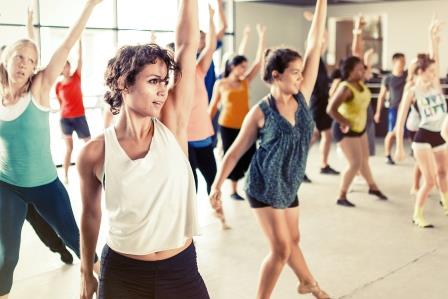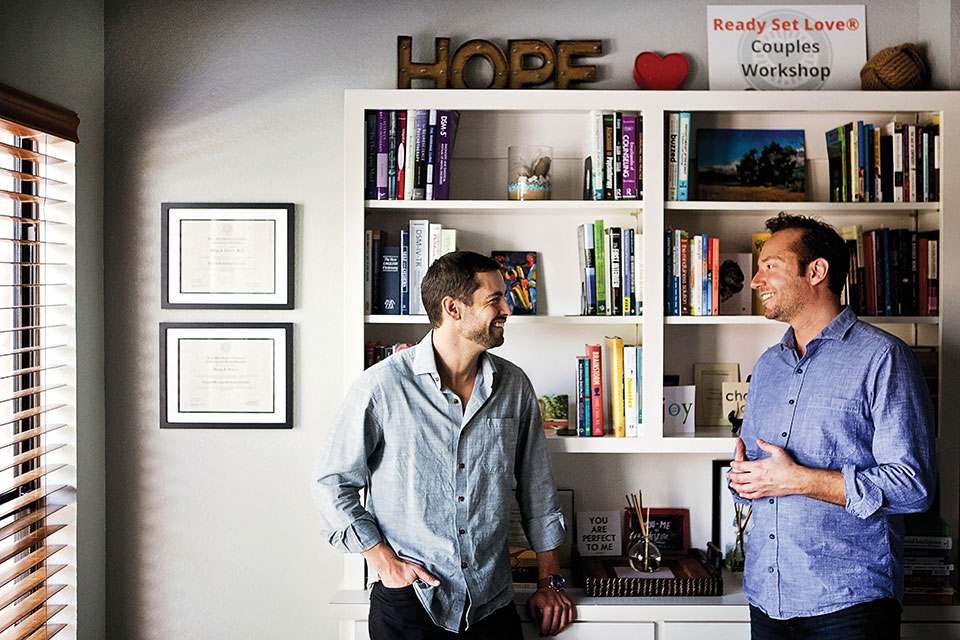Exercise and Movement for Mental Wellness

Austin Fit Magazine community members are generally quite adept at moving their bodies, with great determination and focus, but how does movement affect your mental health? Is there a benefit beyond physical exercise? The answer is that regular movement absolutely supports your mental health. Numerous studies show the benefits of exercise to manage stress, reduce anxiety, improve depressive symptoms, help you sleep better, and more. Medical doctors now often recommend 30 minutes of cardio exercise daily for optimum well-being.
Maybe you’re exercising vigorously and regularly, and getting physical benefits (yay sweat!), but how much do you use movement to support your mental health? Marc David, founder of the Institute for the Psychology of Eating, invites people to shift from a ‘force your body to work out’ to a ‘learn to listen to your body’ approach. Yoga classes also often encourage you to be present with your feelings and let working through them be part of your movement. Sometimes, as exercise fans, we set physical goals and then force our bodies to move towards those goals. That can work well and lead to the desired outcome, whether that is weight loss, muscle gain, or improved endurance, but it can also be taxing on the nervous system or on your emotions if you neglect the mental benefits of exercise and only focus on the physical dimension.
How do you love to move your body? Playing a sport? Dancing to your favorite music? Running or yoga or cleaning?
Our Austin friend Adriene Mishler is now a worldwide legend (plus a beautifully kind person!) for teaching people how to ‘find what feels good’ through yoga on YouTube. She invites everyone to pay attention to their body from a place of being curious instead of wanting/forcing it to be a certain way. How refreshing!
The pressure from media and Hollywood idols of “perfect bodies” or “perfect fitness” may lead us to compare ourselves harshly, go against our natural rhythms, and force our bodies to conform to superficial ideals of beauty. When we are gentle with ourselves, we commune with our bodies at new levels-by slowing down enough to listen to more sensory information that’s being communicated through our nervous systems.
Certainly, there is value to be gained through intense discipline and commitment to physical strength and endurance. The invitation we are making is: How can you listen a little more to what your body is saying? Your body stores a record of your mental health via stress, tightness, emotional energy, and sometimes even pain. The cumulative stress you carry inside is called allostatic load. It accumulates through excess internal and external stressors, like not feeling emotionally supported in life, experiencing financial stress, or through partner/relationship stress. Especially during this time of COVID, we need to have people we can open up to about our day, feel safe and trusting of those around us, and get out what may bother us and share what excites us.
Movement practice: If you haven’t stood up in a little while, we invite you to stand up and stretch your fingers to the sky, and then put your hands on your lower back and fold down, letting your head and neck drop down and dangle for a few breaths. Scan your body for information. Do you notice any tension or good feelings from your feet to your hands to your face? Pay attention to the small muscles, and key areas like your neck, shoulders, jaw, the length of your spine, and hips. Notice any emotional energy, stress, or anxiety? When we notice what’s happening in our bodies at a more granular level, we can find new ways to move the tension out of our bodies. This is a major reason why yoga is so popular now…People are carrying so much stress from work and modern living that they are looking for a way to move and shake it out.
Shake it out friends, and give yourself the treat of finding out how your body likes to move and groove a little more today!
John Howard and Peter Craig are psychotherapists at PRESENCE, an integrative wellness center supporting your mental, physical and relationship health so you can heal, grow, and thrive in life through science-based psychotherapy and medicine.







